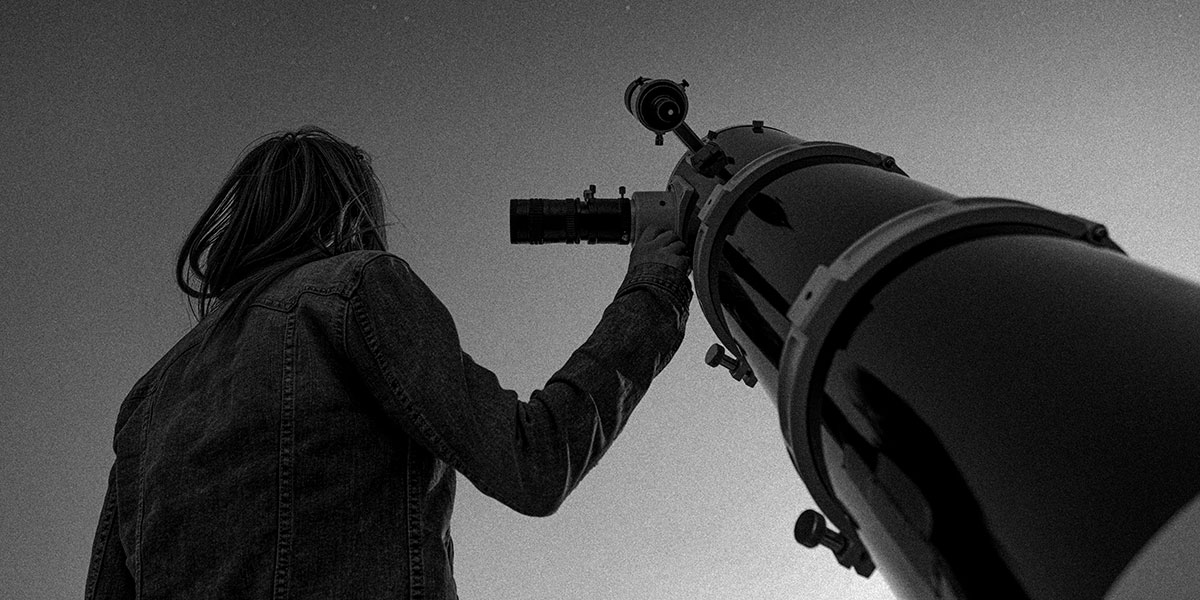
Wingspan, Fall 2024
With the recent solar eclipse, intense aurora borealis and the upcoming Artemis II mission, all eyes have been on the sky. That’s nothing new for AACC’s astronomy program.
In an unassuming building behind Parking Lot A are six mounted telescopes where users can observe galaxies, planetary nebulae, star-forming regions and stellar clusters. The lab also offers astronomical binoculars, a computerized portable telescope and equipment for solar observation and infrared imaging.
Students interested in pursuing astronomy or looking for a science course can benefit from AACC’s experienced science faculty.
“Astronomy is big. Big in terms of the sizes and distances, and big in terms of the concepts and implications. What was the origin of the universe? How do stars and planets form? How plausible is long-distance space travel? What is a black hole anyway?”
Deborah Levine, Ph.D., has been answering these questions with AACC students since 2017. She’s worked for Caltech and NASA's Jet Propulsion Laboratory, designed and managed operations for teams at the Spitzer Space Telescope Science Center (SSC) and served as the U.S. resident astronomer for the European Space Agency’s Infrared Space Observatory. In 2021, she was selected for NASA’s Airborne Astronomy Ambassadors, a professional development program for science teachers designed to improve science teaching and increase student learning and STEM engagement.
“Astronomers tend to be very passionate about the subject, and that goes for our astronomy faculty. These are challenging courses, but also fun. We try to keep things interactive and approachable,” she said.
Students might follow in Levine’s footsteps and embrace a career in astronomy. Jessica Harryman, who transferred from AACC to UMBC in 2018, earned her bachelor’s degree in physics. She’s working for NASA’s Geostationary Operational Environmental Satellites while completing her master’s in space systems engineering at Johns Hopkins.
The public can enjoy AACC’s astronomy lab during Super Science Club’s “stargazing parties” and after the annual Planet Walk hosted by Friends of Anne Arundel County Trails.